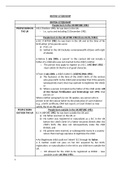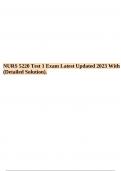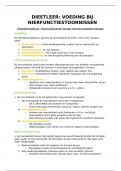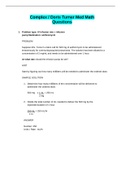Exam (elaborations)
LPC - Immigration Law Revision Notes - 2022/23
- Module
- LPC - Legal Practice Course
- Institution
- LPC - Legal Practice Course
Fully, comprehensive revision notes for the LPC Immigration Law Exam. I achieved a Distinction using these notes (70%).
[Show more]







